Sunday Times 2
Message from H.E. Abdulhamid A K Al Mulla – UAE Ambassador
On 2nd December, the federation of the United Arab Emirates will mark the 42nd anniversary of its establishment in 1971.
On this happy occasion, I am extremely pleased to extend heartiest greetings, on behalf of the Government of the United Arab Emirates, under the leadership of His Highness Sheikh Khalifa Bin Zayed Al-Nahyan – President of the United Arab Emirates and His Highness Sheikh Mohamed Bin Rashid Al-Maktoum – Vice President and Prime Minister of the United Arab Emirates and the Ruler of Dubai, to the friendly people of Sri Lanka, led by His Excellency Mr. Mahinda Rajapaksa – President of the Democratic Socialist
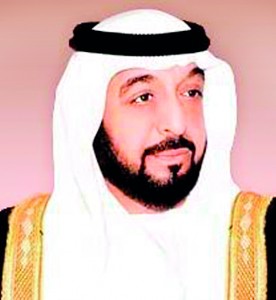
His Highness Sheikh Khalifa Bin Zayed Al Nahyan-The President of the United Arab Emirates
Republic of Sri Lanka.
Formed in 1971 from seven Emirates, Abu Dhabi, which is the capital, Dubai the Country’s commercial centre, Sharjah, Ras-al-Kaimah, Fujairah, Umm-al-Quwain and Ajman, the UAE is located in the south-eastern corner of the Arabian peninsula, with coastlines on the Arabian Gulf and on the Indian Ocean.
Over the past 42 years, UAE has not only survived, but also developed at a rate that is almost without parallel. Progress, in terms of social services, health and education, as well as in sectors such as communication and the oil and non-oil economy, has brought a high standard of living that has spread throughout the seven emirates, from ultra-modern cities to the remotest areas of dessert and mountains.
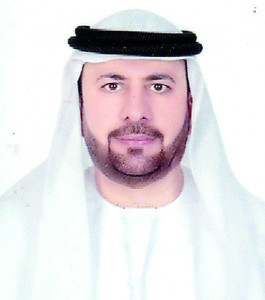
H.E. Abdulhamid A K Al Mulla UAE Ambassador
Since its formation in 1971, the Federation of seven Emirates, comprising the UAE has brought an enviable degree of political stability and security to the region. In fact the UAE is the only state in the Arab world to have a working federal system that has stood the test of time. Due to the vision of late Sheikh Zayed Bin Sultan Al-Nahyan, the founder of UAE, the UAE’s political system, which is a unique combination of the traditional and modern, has underpinned this political success, enabling the country to develop a modern administrative structure while at the same time ensuring the best of the traditions of the past are maintained, adapted and preserved.
In the field of Foreign Policy, UAE has strengthened its role as a significant player within the international community. The UAE’s political leadership operates within the broad foreign policy framework that was established by the founding President of the Federation, late Sheikh Zayed Bin Sultan Al-Nahyan. This approach emphasizes diplomacy, negotiation and compassion. The UAE is mindful of its commitment to its neighbors and the international community, with regard to regional peace, stability and security for all. A distinguished feature of the UAE in the field of foreign policy is based on strategic principles which elaborate UAE’s commitment to the United Nations and respect for international treaties, and building relationship with all the countries in the world based on mutual respect and non-interference in internal matters. It also aspires to solve global crisis through negotiations and peaceful means and to stand for truth and justice.
The UAE economy has grown 200 folds since the country’s foundation in 1971 and is now the second biggest economy in the Arab world. Following a dip during the global financial crisis, economic growth has once again picked up pace, with GDP rising by 4.4 per cent in 2012. I am pleased to mention that the United Arab Emirates has :
-Continued to maintain its position as the first among Arab countries in the Global Happiness and Satisfaction Index and has been placed in the 14th position from among 156 countries in UN’s Happiness Report 2013.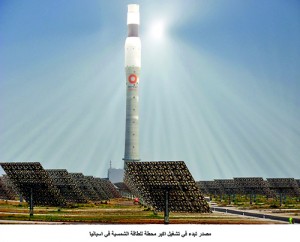
- For the second consecutive year has been ranked the first among the Arab countries and ascended to the 3-oth rank globally from along 187 countries, and categorized among very high human development countries in the Human Development Report of 2011, commissioned by UNDP.
- The Global Competitiveness Report for the year 2013/14 shows that UAE has advanced by five places to be ranked the 19th in the general classification for the year 2013.
- The state has maintained for the eight consecutive years, its presence in the ranks of “economies based on creativity and innovation”, which is considered as one of the most advanced stages of the global economies based on methodology followed by the World Economic Forum, which ranks 148 countries under three main categories.
- UAE topped the Middle East and North Africa in Foreign Direct Investments directed towards foreign countries, where the number of state Investment projects abroad rose to 220 projects in 2012, compared to 174 projects in 2011.
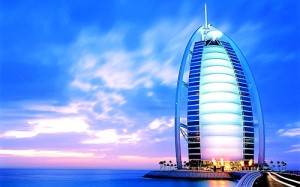 The energy sector is the foundation of UAE’s wealth and also a key source of revenues to finance continuing economic diversification. The country has the world’s seventh largest proven reserves of both, crude oil and natural gas, which accounted for 42 per cent of GDP in 2012. The UAE is also pursuing ground-breaking renewable energy and energy efficiency programmes as part of government policy to build the foundations for a future that is less reliant on hydrocarbons.
The energy sector is the foundation of UAE’s wealth and also a key source of revenues to finance continuing economic diversification. The country has the world’s seventh largest proven reserves of both, crude oil and natural gas, which accounted for 42 per cent of GDP in 2012. The UAE is also pursuing ground-breaking renewable energy and energy efficiency programmes as part of government policy to build the foundations for a future that is less reliant on hydrocarbons.
Industrial development is playing an increasingly vital role in driving UAE economic expansion and diversification, accounting for 16 per cent of GDP. The main pillars of UAE industry are petrochemicals, aluminum and steel with strong growth also in biotechnology, pharmaceuticals, telecommunications equipment, aerospace and health care equipment.
Education and health are the major focus on Government’s expenditure. Access to education is provided free for all UAE citizens, from primary school to University, while several thousand of UAE students benefit from the Government grants to pursue higher studies overseas. Education has long been priority for the UAE, but the sector has taken on a renewed significance in recent years as efforts to reduce the private sector’s reliance on imported labour have been awarded greater urgency. With two-thirds of Emiratis under the age 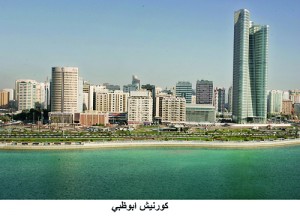 of 30 and youth unemployment significantly higher than the overall unemployment rate, the government is actively expanding and reforming the education sector, with the aim of better matching the skills of graduates with the needs of the labour market.
of 30 and youth unemployment significantly higher than the overall unemployment rate, the government is actively expanding and reforming the education sector, with the aim of better matching the skills of graduates with the needs of the labour market.
The healthcare demand has grown along with the population and billions of dirham has been invested to improve healthcare, which is provided for free in government hospitals and clinics to all UAE citizens, while mandatory health insurance is being extended to all residents. The progress the sector has made is illustrated by the country’s maternal mortality rate, which is now among the lowest in the world.
Women are recognized as critical partners in the UAE’s development, and the role of women in social, government and economic life continues to expand. For 2012, the UAE was ranked fortieth out of 148 countries, and ahead of all other Arab nations, by the UN’s Gender Inequality Index. The Constitution of the UAE guarantees equal rights for both men and women, ensuring that women have the same legal status, claim to titles, access to education, employment, health and welfare facilities.
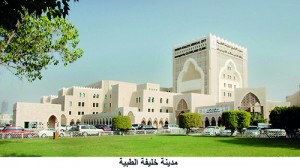 Women of UAE ranked first in the world in terms of educational attainment rates, according to the annual report of the World Economic Forum in 2012, obtaining 10,000 points. It also ranked 81st in relation to the political empowerment of women by obtaining 1,206 points, and 122nd globally in the economic participation index at 4,751 points.
Women of UAE ranked first in the world in terms of educational attainment rates, according to the annual report of the World Economic Forum in 2012, obtaining 10,000 points. It also ranked 81st in relation to the political empowerment of women by obtaining 1,206 points, and 122nd globally in the economic participation index at 4,751 points.
Tourism has been of critical importance to the UAE’s economic expansion plans over the past two decades and sits at the heart of all seven emirates’ diversification plans. Tourism accounted for 14 per cent of GDP in 2012 and provided one in nine jobs. Currently ranking 31st, the UAE is one of the fastest growing travel destinations in the world. Today UAE features in the brochures of most of the top international tour operators. At the core of the country’s success have been the ever present winter sunshine, spectacular sandy beaches and first class facilities and services, including superlative shopping, manicured golf courses, the allure of dessert and an ancient heritage with a safe environment. Flagship projects such as Emirates Palace Hotel, Burj-al-Arab (world’s most luxurious hotel), Madinat Jumeirah, Burj-Khalifa (world’s tallest building) and Dubai Mall (the largest Shopping Mall in the world with 1400 shops) have helped to raise the profile of the country, with the result that the 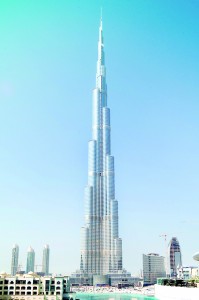 Federation has too much to offer, even the most demanding guests. The tourism boom is also being complimented by the growth in the exhibitions and conference market. I happy to state that the:
Federation has too much to offer, even the most demanding guests. The tourism boom is also being complimented by the growth in the exhibitions and conference market. I happy to state that the:
- The travel and tourism sector witnessed significant developments reinforcing the status of the UAE on the world tourism map, to be placed the first globally in the competitive travel and tourism sector within six indicators included in the report of the World Economic Forum for 2013, notably sustainable development, effectiveness of tourism promotion, airline and support services. UAE was ranked eighth on the world and first in Middle East in the list of countries advanced in the tourism and aviation sector.
- The UAE has assumed the 30th rank globally among the 139 countries covered in the competitiveness report in travel and tourism for the year 2011, published by the World Economic Forum, while retaining its position of first place in the Middle East region among the countries most advanced in the travel and tourism sector.
- UAE is ranked ninth in terms of tourism investment on the World Travel and Tourism Index published by the World Travel and Tourism Council which covers 181 countries in the world. The report indicated that the volume of UAE investments in this sector has reached around 25.3 billion US Dollars in 2013, compared with 22.9 billion US Dollars in the year 2012.
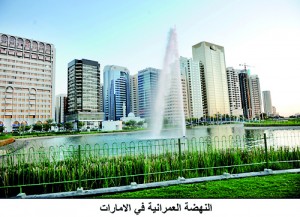 - UAE is ranked fourth globally in tourism infrastructure, particularly in the structure of airports and air transport sector, and its hotels have attracted about 15 million tourists in the year 2012 from all around the world, with revenues of these hotels standing at around 5.9 billion US Dollars.
- UAE is ranked fourth globally in tourism infrastructure, particularly in the structure of airports and air transport sector, and its hotels have attracted about 15 million tourists in the year 2012 from all around the world, with revenues of these hotels standing at around 5.9 billion US Dollars.
- UAE’s five major airlines, namely Etihad Airways, Emirates Airlines, Air Arabia, Fly Dubai and RAK Airways, top a list of top 50 airlines in the world, in terms of passenger traffic and freight transport from among 240 airlines in 120 countries around the world, according to a report of the Air Transport Statistics (WATS) and according to the key performance indicators for the Air Transport Association (IATA) for the year 2011. It also topped in terms of the total passenger traffic through airports for the fourth consecutive year with about 80 million passengers during the year 2012 , Dubai International Airport ranked the second on the list of the busiest airports in the world in 2012 .
- United Arab Emirates was ranked first among Arab countries for the largest number of free economic zones among the 19 countries, according to the Climate Questionnaire report of 2011, which was launched by the Arab Association for Investment Guarantee and Export Safety. There are 30 Free Zones in UAE, in addition to 9 others planned to be setup.
- UAE assumed the first rank in the Middle East and Africa, and second in the World Index on state use of Information Technology, from among 144 countries covered in the Global Information and Communication Technology report of 2013 issued by the World Economic Forum.
The UAE has continued to play its role as an important member of the international community, delivering much needed humanitarian and development aid to those in need around the world, despite the global financial crisis that forced major donor countries to cut down their aid. UAE has continued to demonstrate its commitment to the alleviation of hardship in other underdeveloped and developing countries and to the provision of emergency relief assistance for those affected by conflict and natural disasters.
The total of foreign aids, the UAE has contributed, since its establishment on 2nd December 1971 to 2012 amounts to US$ 171.9 billion, which has been granted to 137 countries in the world, by way of foreign aid and gratis.
Among many Charitable Foundations the UAE Red Crescent, Khalifa Bin Zayed Al-Nahyan Charitable Foundation, Sheikh Mohamed Bin Rashid Al Maktoum Foundation, The Zayed Bin Sultan Al Nahyan Charitable and Humanitarian Foundation, Sharjah Awqaf, Dar-al-ber Society, Al-Maktoum Foundation and Sharjah Charity Association are some prominent organizations where Sri Lanka too benefited and continues to benefit.
I would like to refer that UAE is dealing with al nationalities equally, without discrimination, regardless of religion, race, creed or colour, with the highest regard to safeguarding the fundamental rights, especially the human rights of each and everyone. Also I wish to mention UAE’s efforts taken to contribute to the welfare of our country and the rest of the world which we consider as one of our prime responsibilities.
In the process of its economy and social development, the United Arab Emirates has benefited substantially from the contributions made by expatriate workers, among whom many thousands of people from Sri Lanka have played a significant part. Sri Lankan citizens can now be found in all sectors of the UAE economy, helping to build the emirates, with the other foreign forces and, at the same time, earning incomes that are an important stimulator of growth at home in Sri Lanka. We welcome this contribution and look forward to it continuing in the years ahead.
We are happy to record the ever increasing cordial and trade relationship between Sri Lanka and UAE, which have developed over the years, especially UAE being a strong supporter of Sri Lankan Teas and it also serves as a hub for the distribution of Teas to the nearby countries in the region. In addition to Tea, UAE also imports from Sri Lanka a number of goods including foodstuff and garments, while in return we export petroleum products, aluminum, fertilizers and other products to Sri Lanka.
The bilateral relationship between the two countries has been significantly enhanced. The visitors to UAE from Sri Lanka are increasing day by day, not only on business but on tourism too. Also there is a progressive increase in the arrival of UAE nationals to Sri Lanka.
A number of joint venture trade projects have been implemented and are being implemented between both countries, helping to link the two countries together even more closely. The exchange of Ministerial visits between the two countries has continued to consolidate the already strong economic ties.
Finally may I take this opportunity, on this happy occasion, to wish H.E. Mahinda Rajapaksa – President of the Democratic Socialist Republic of Sri Lanka and to the people of Sri Lanka all prosperity.


